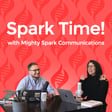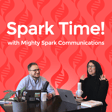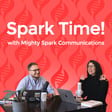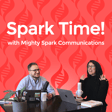
Ep. 25 Javier Tordable Saw Biotech’s Blind Spot. Then Built a Company to Fix It.
What does a former Google leader see when he looks at the drug discovery process? A broken system and a once-in-a-generation opportunity to rebuild it with AI.
Javier Tordable spent 16 years at Google leading technical teams, and helping global pharma companies modernize through AI in his role as Technical Director in the CTO office. Now he’s the founder and CEO of Pauling AI, an early-stage startup using molecular simulation to radically accelerate how new medicines are found. In this episode, Javier breaks down what biotech gets fundamentally wrong about AI and the cost of those misconceptions.
We explore the bold bets he’s making to reshape the industry, what biotech teams get wrong when explaining cutting-edge science, and how hosting his own podcast, The Pauling Perspective, has sharpened his lens on what truly resonates.
Also on the table: Linus Pauling, investor mind games, and the one prediction about drug development that might make traditionalists sweat.
This one’s for the engineers, the skeptics, and anyone daring to rethink what’s possible.



